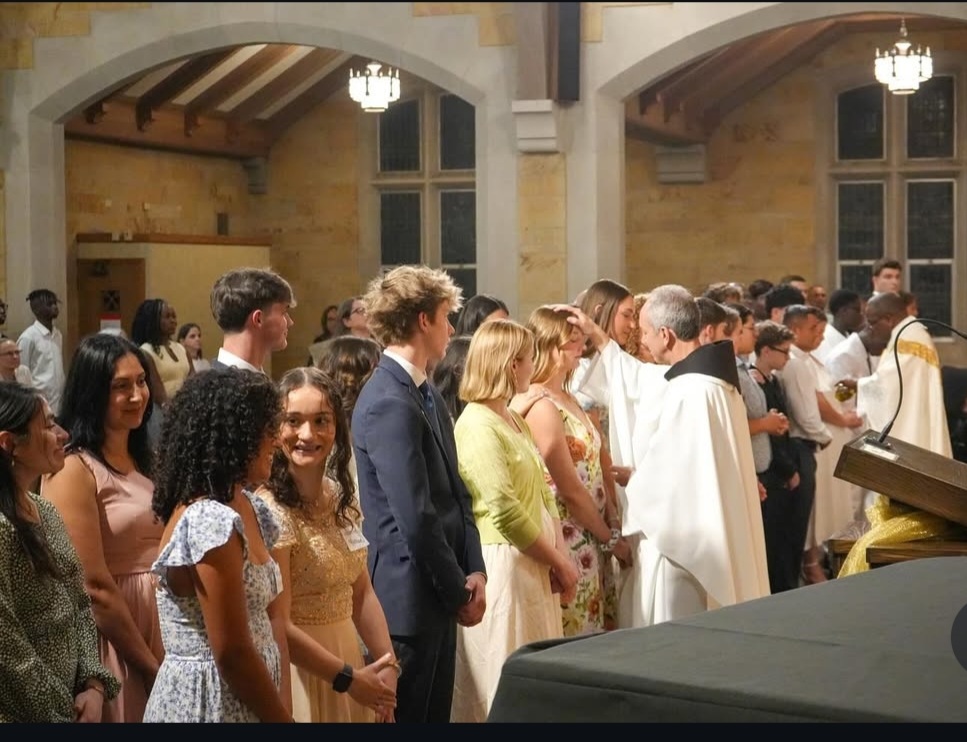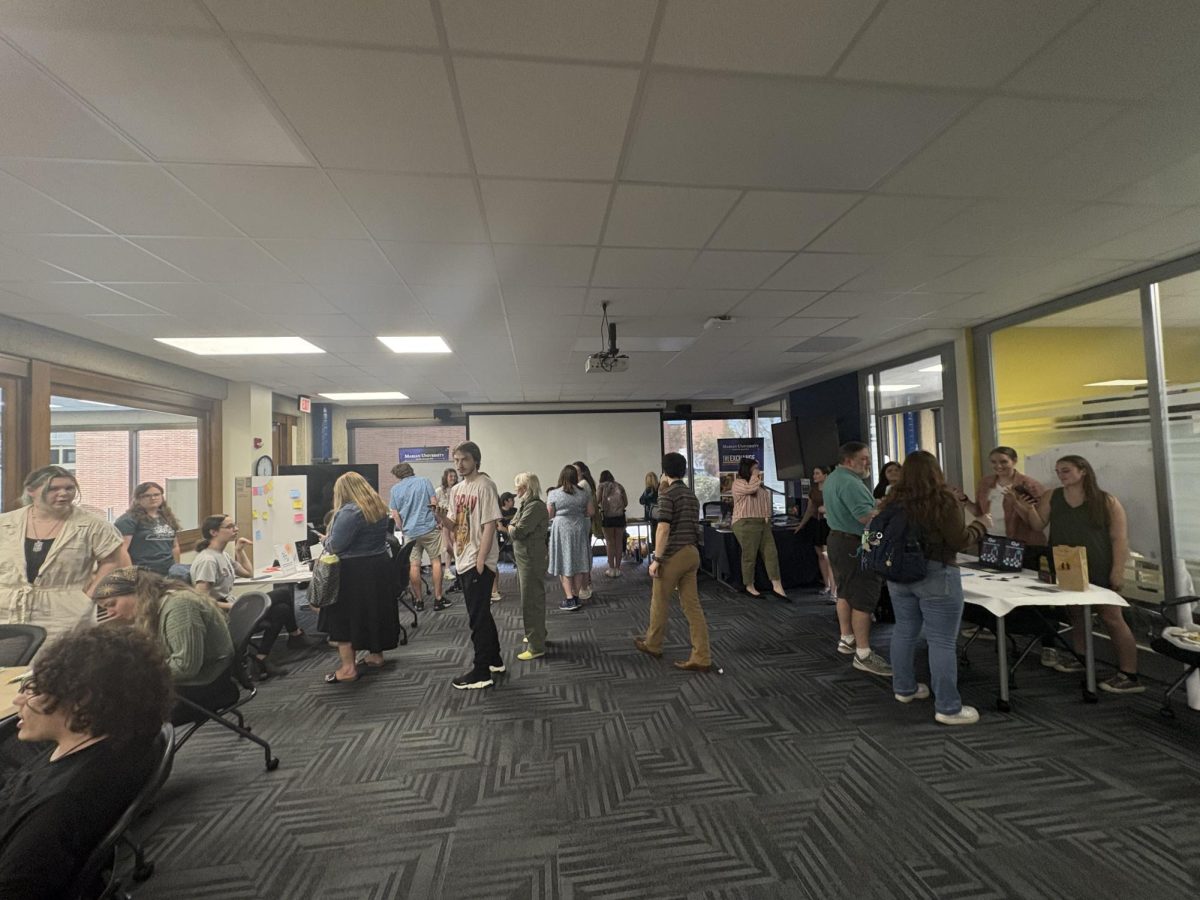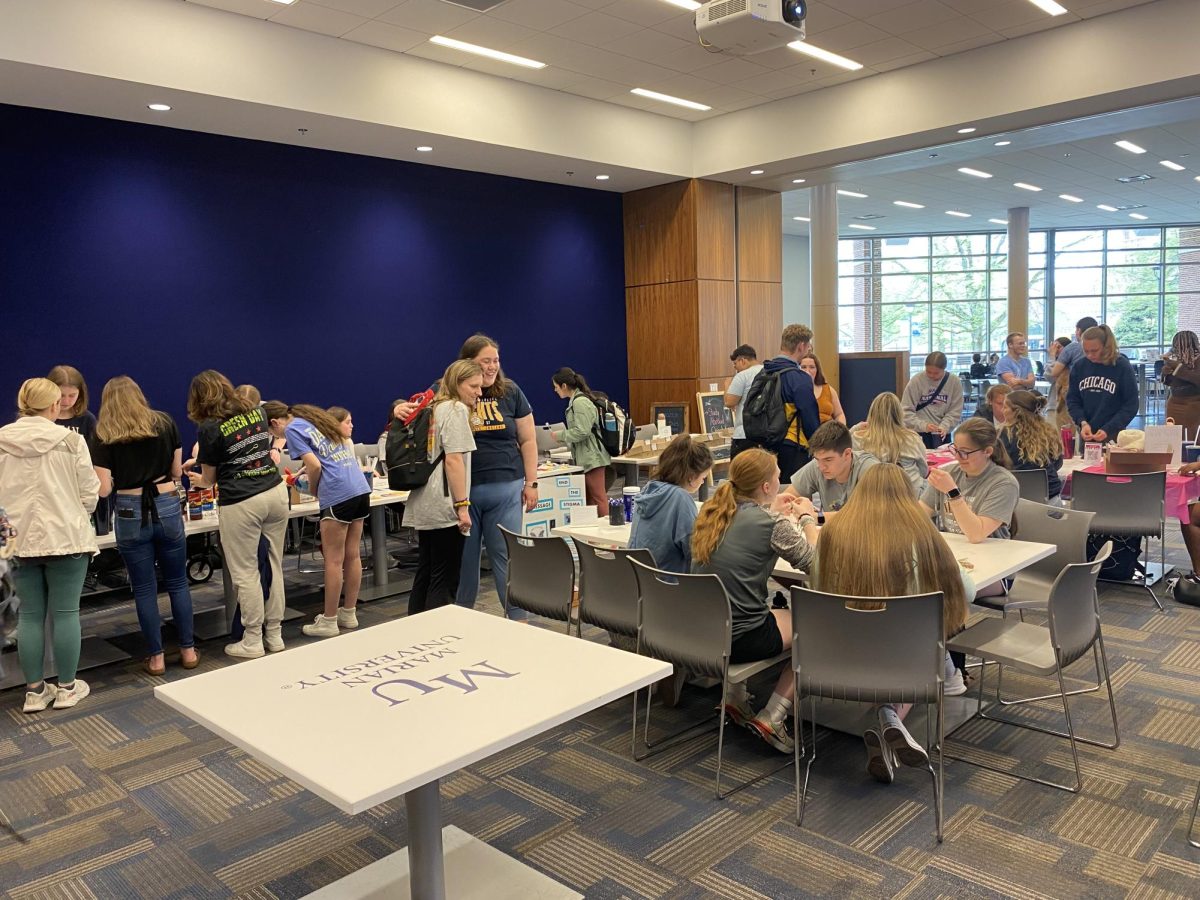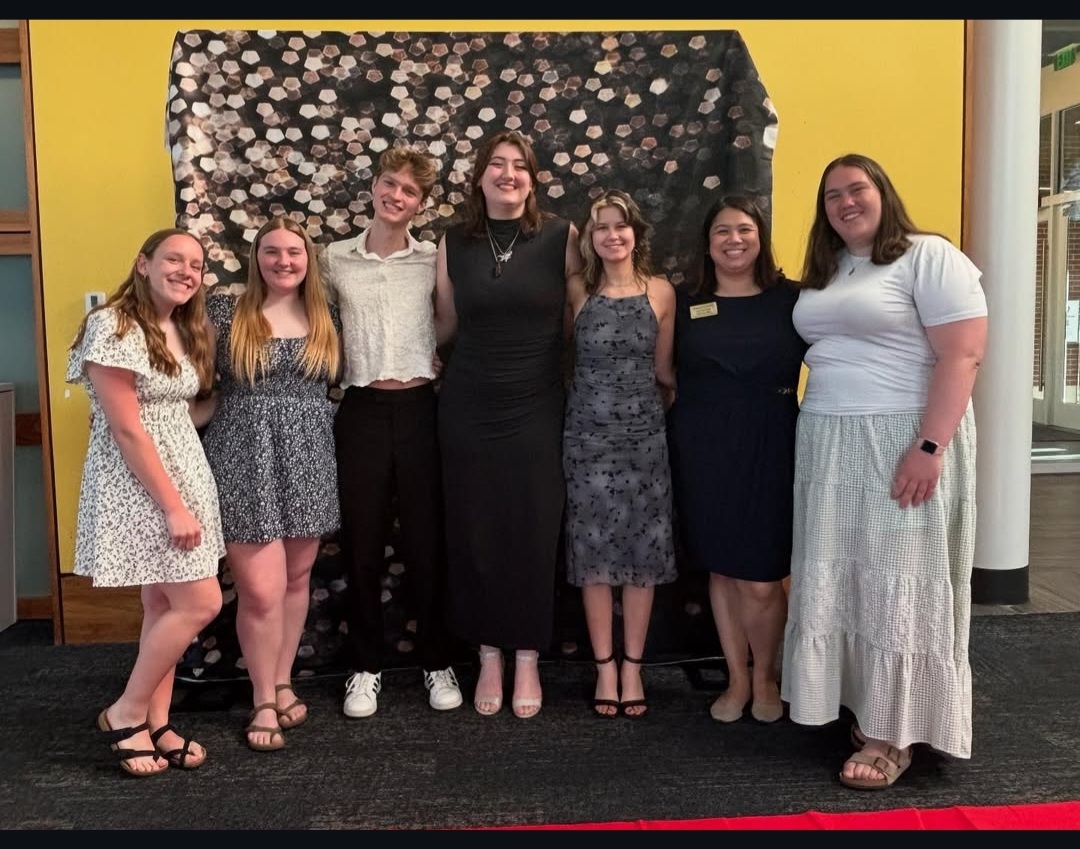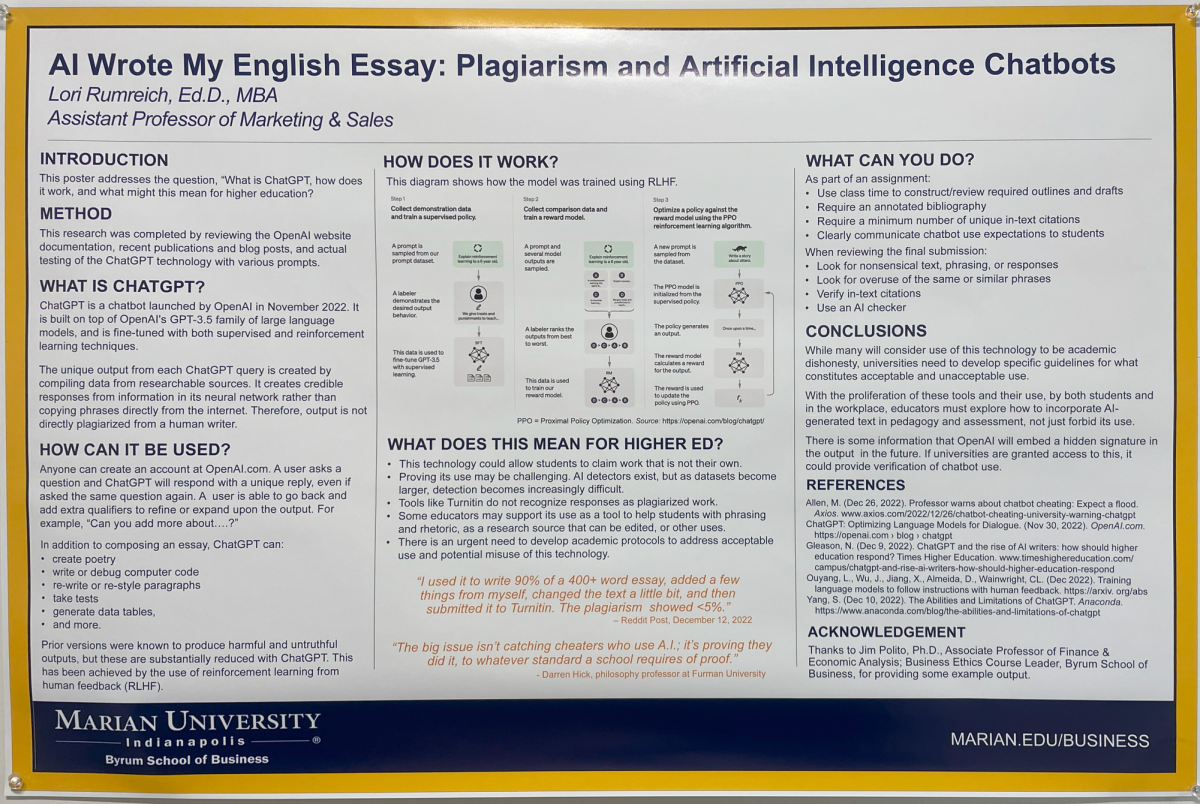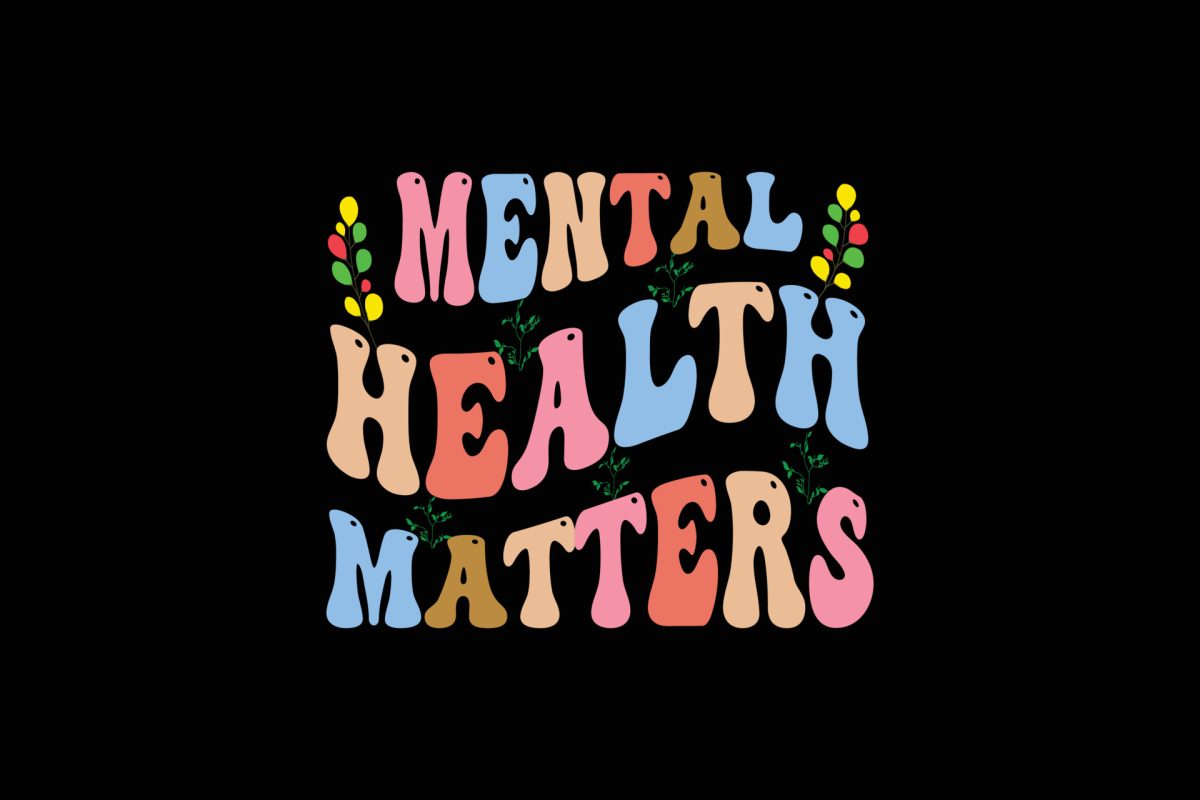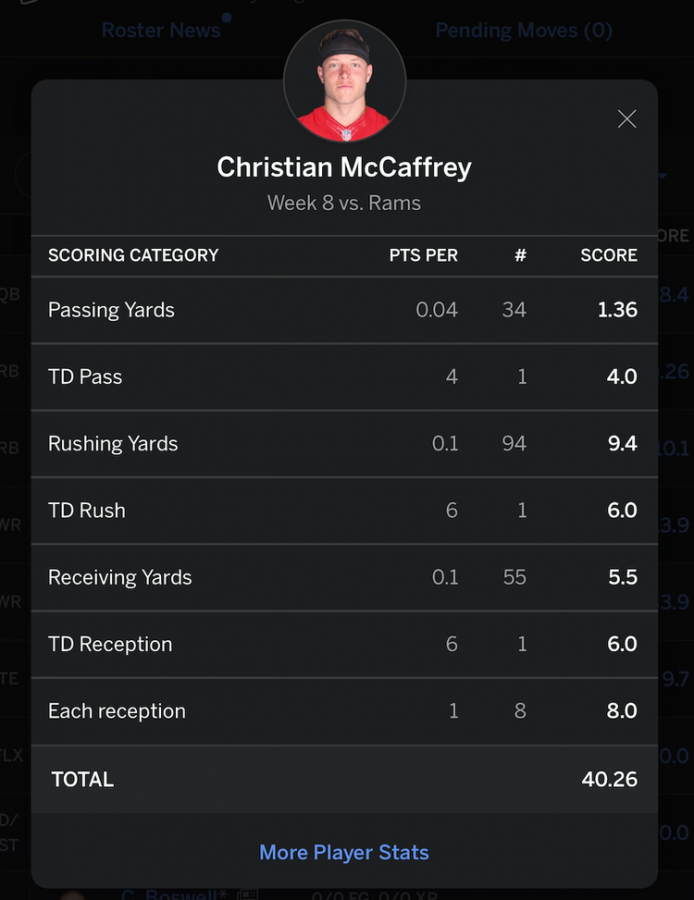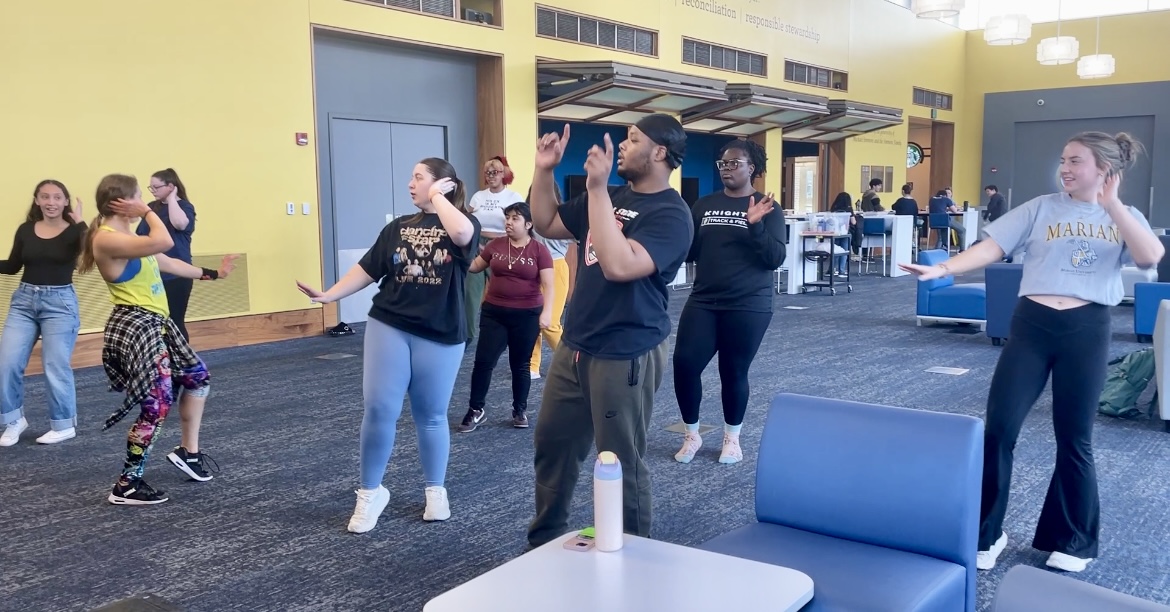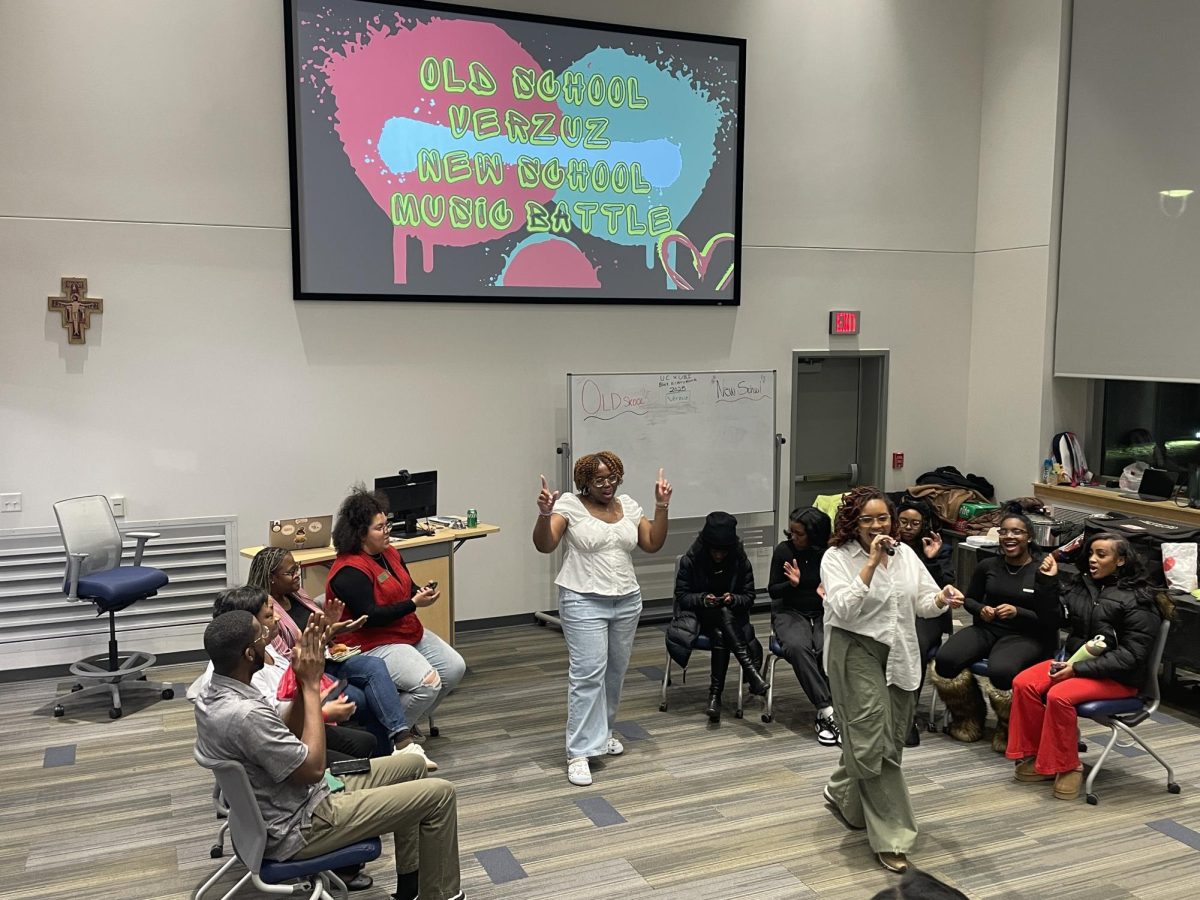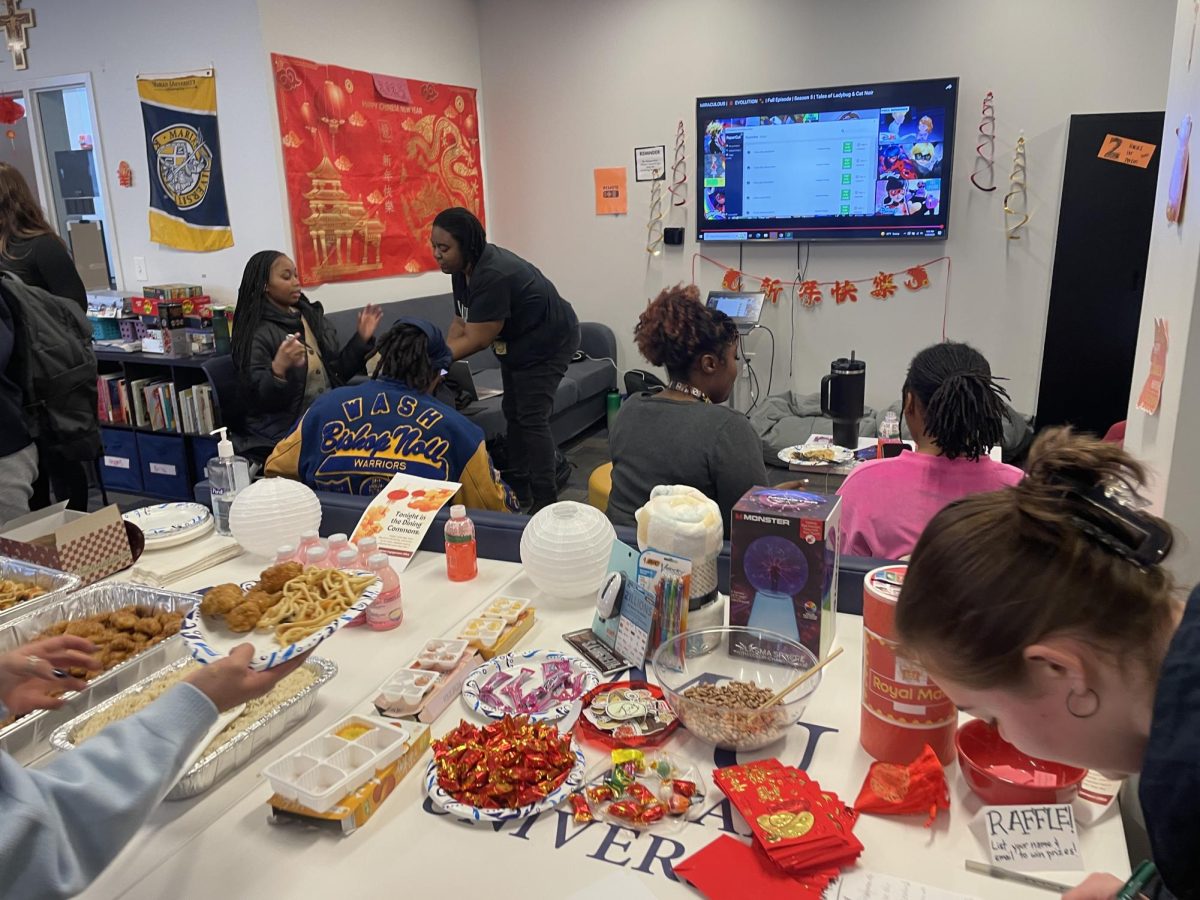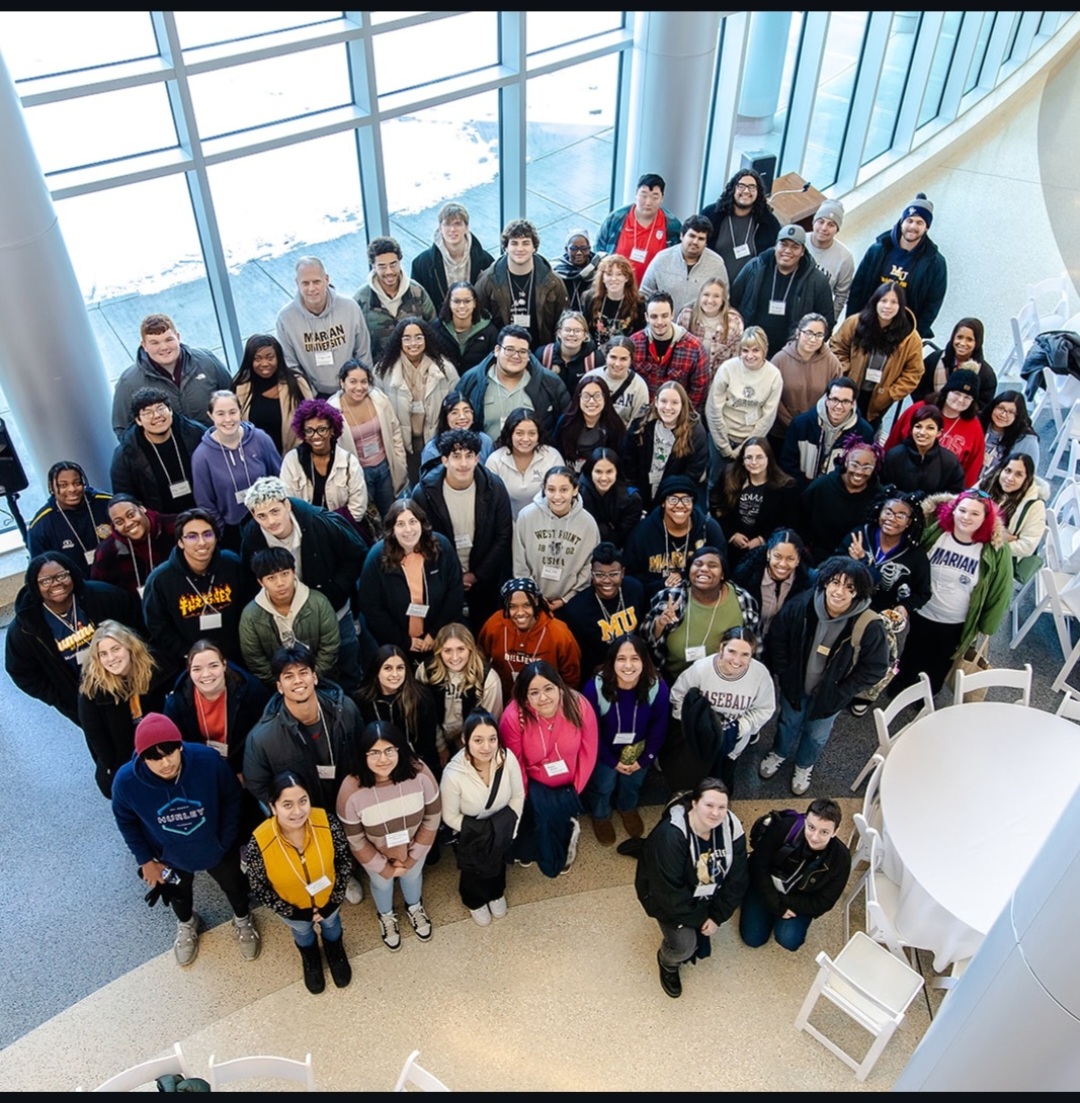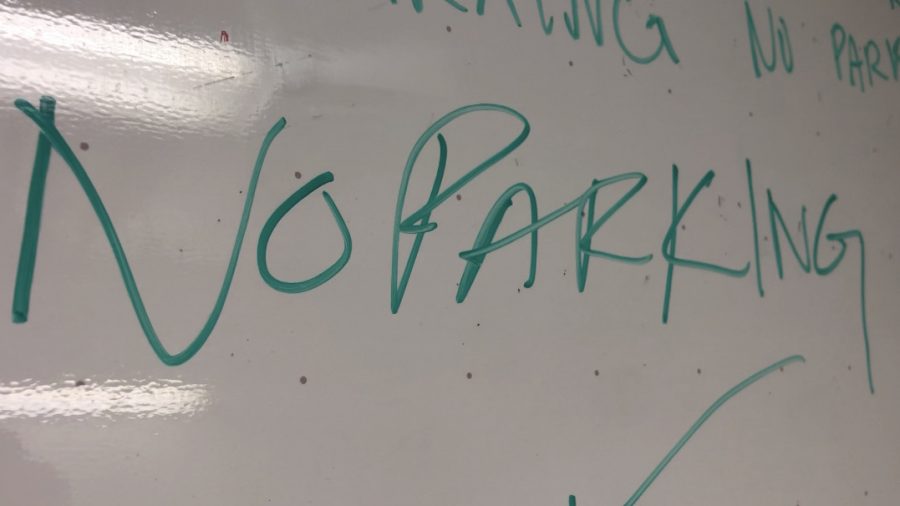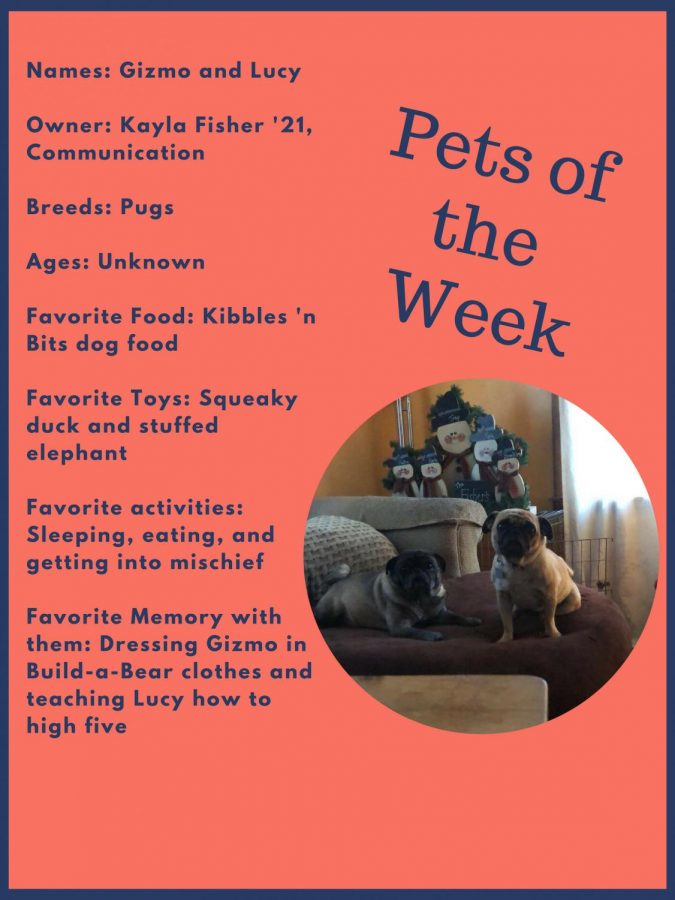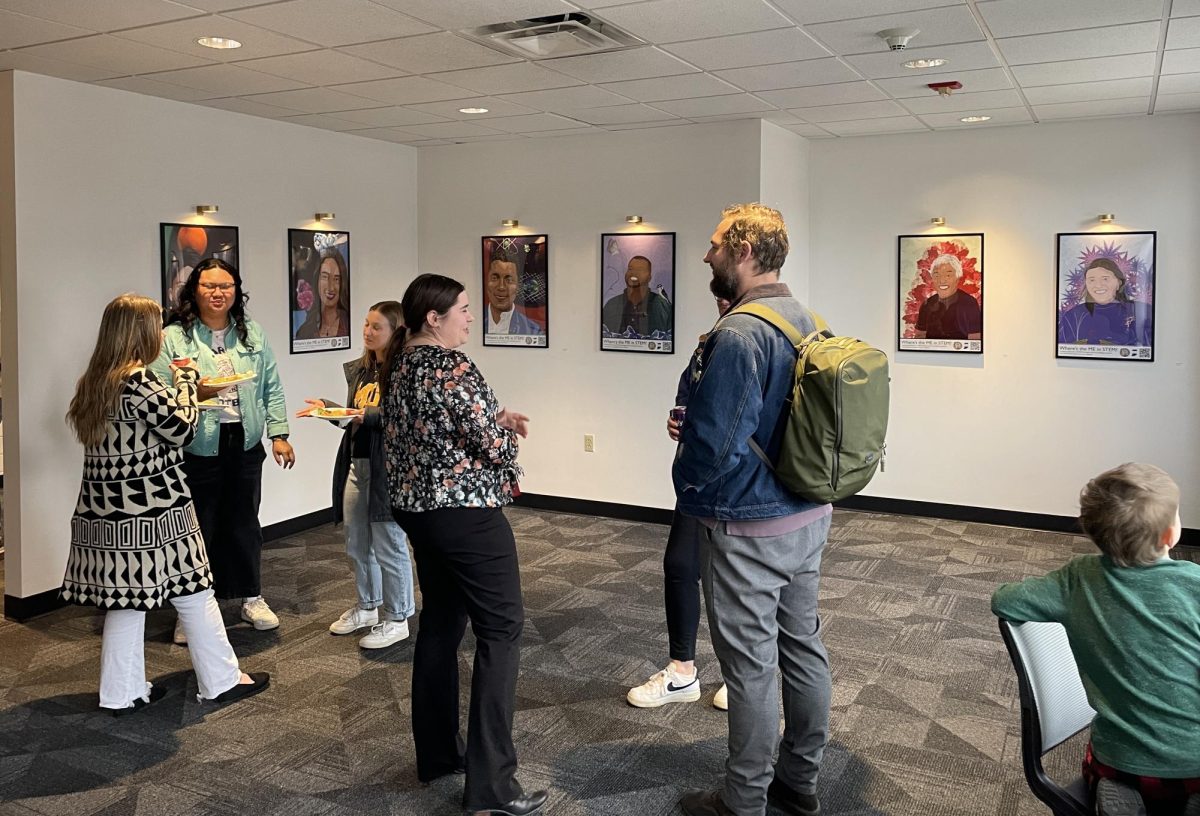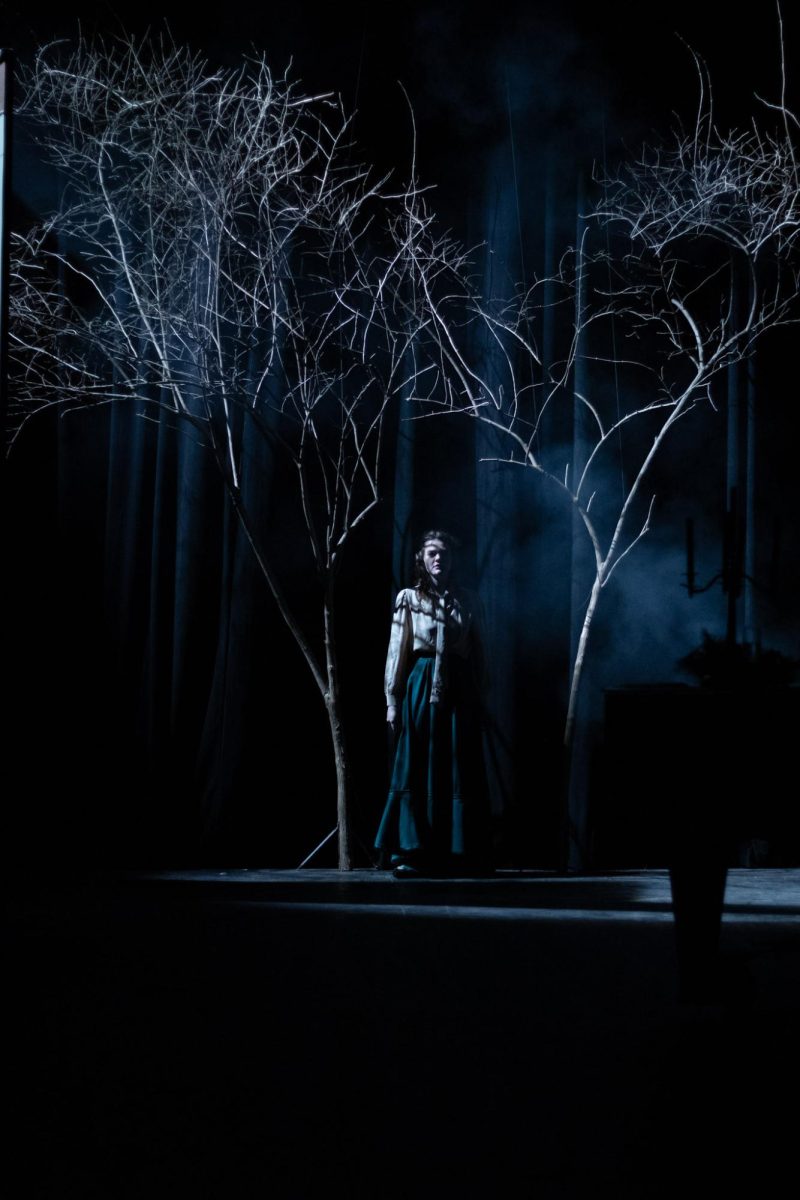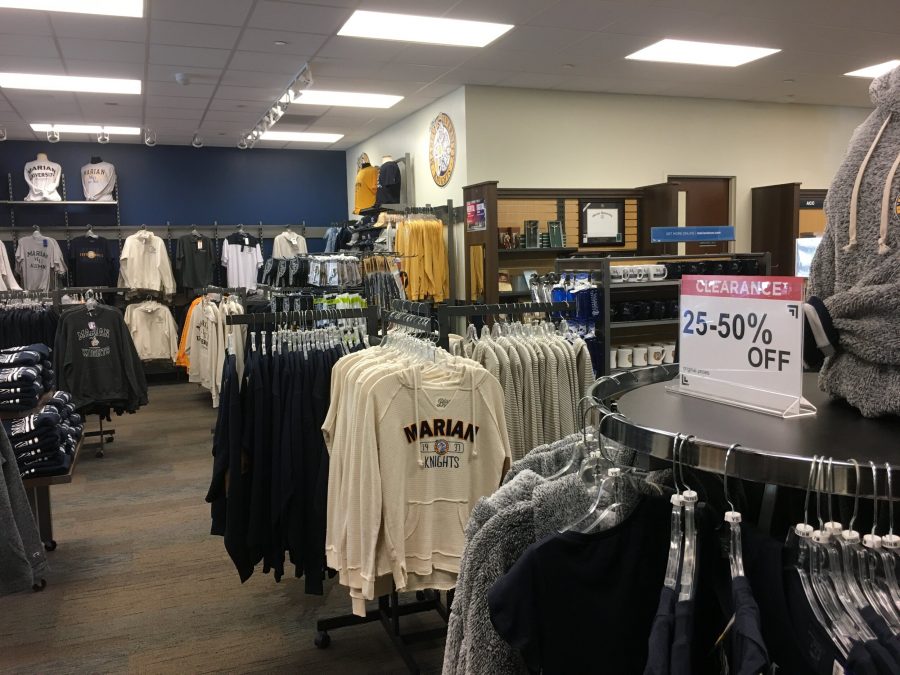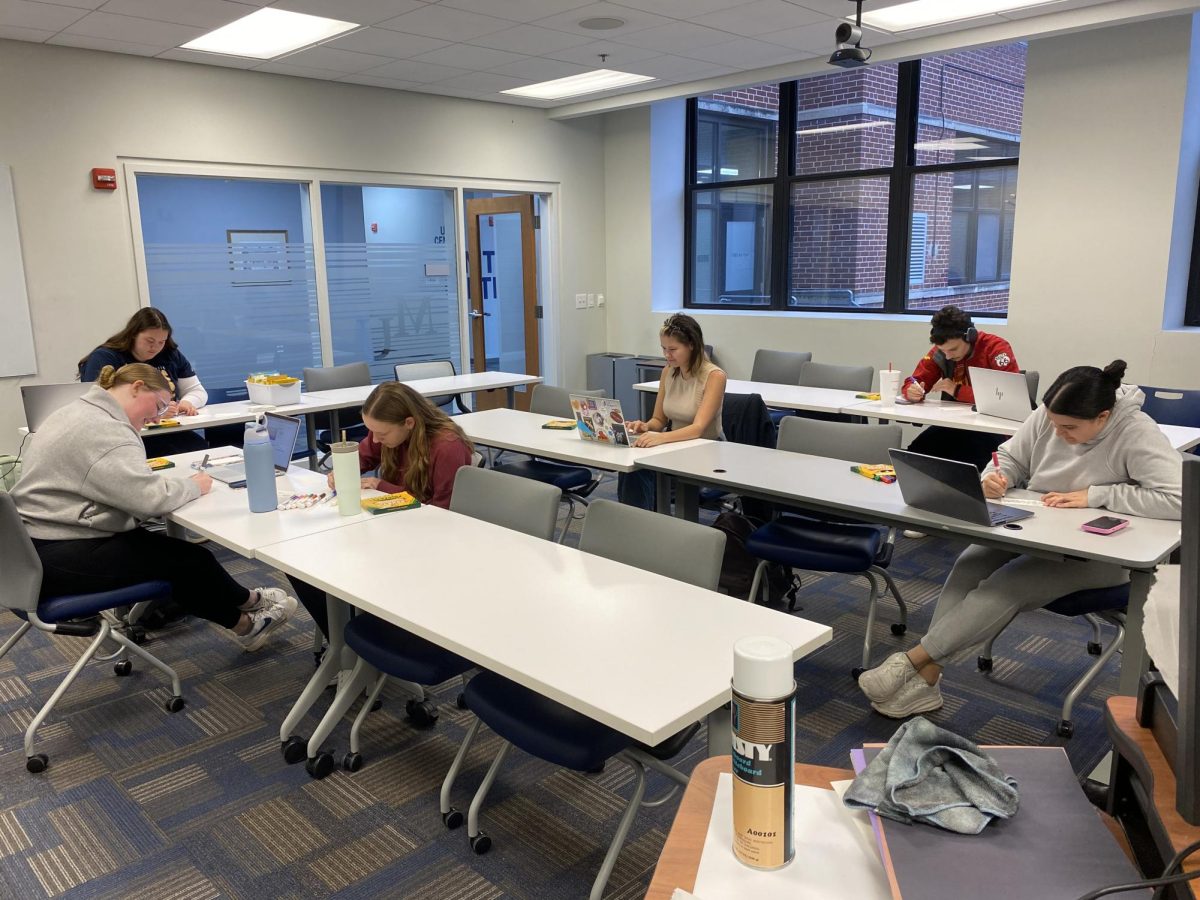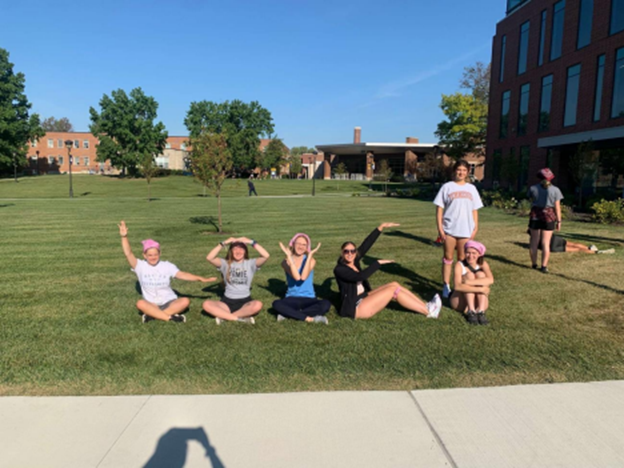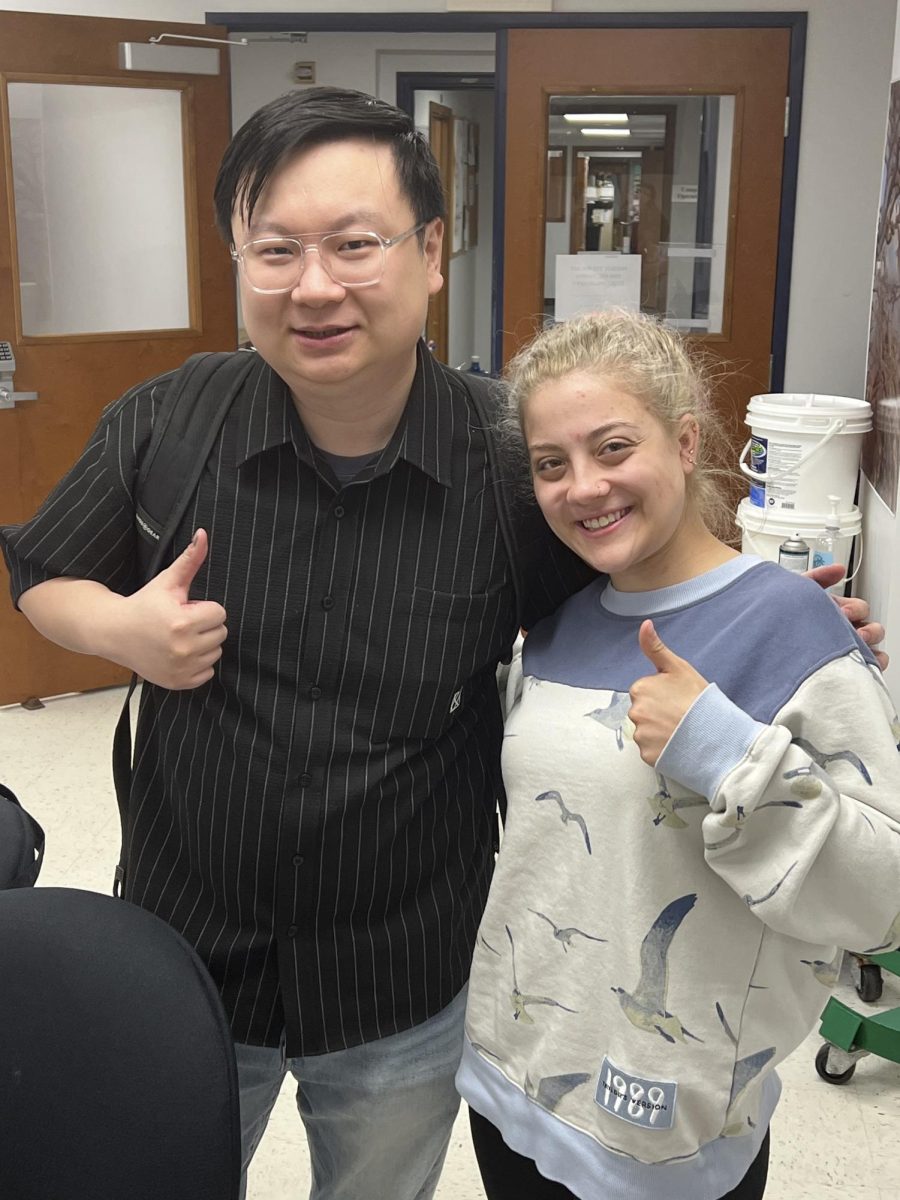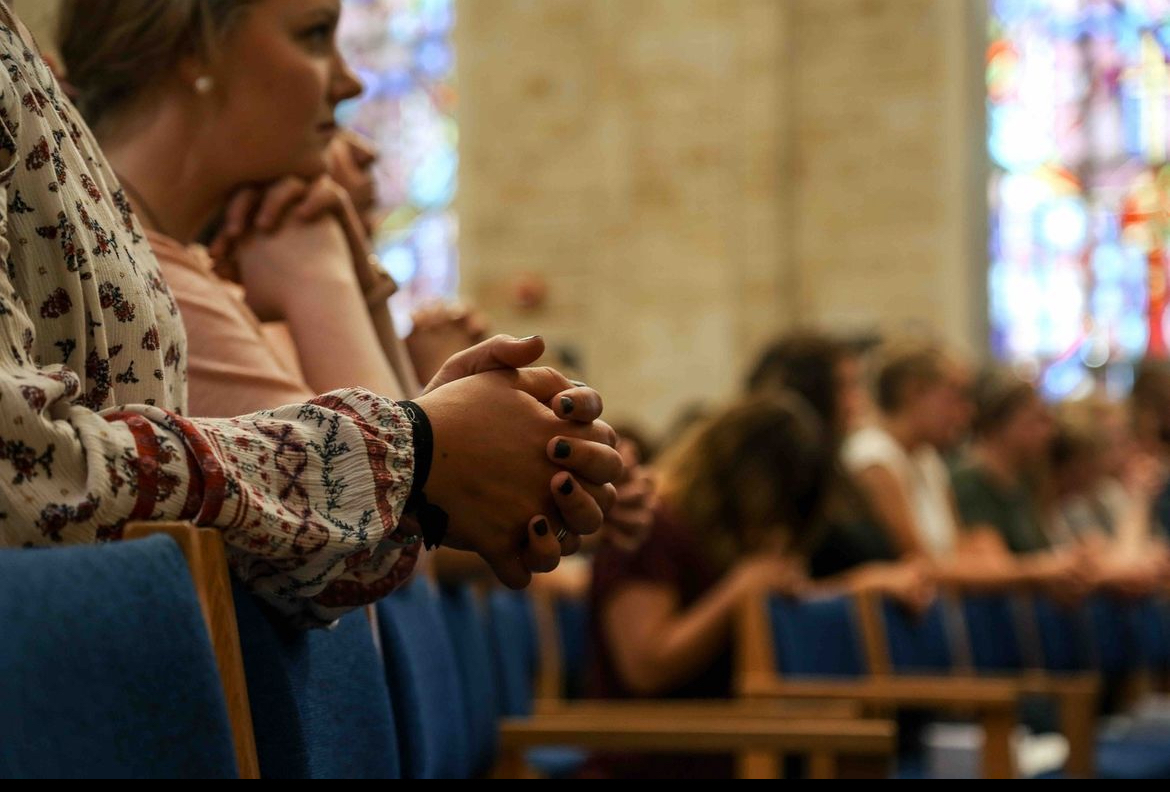By Julia Akre
Marian University’s bookstore in Alumni Hall houses over 20 different brands of clothing thanks to the clothing distributor, Follett. The largest brand on campus with over 60 designs available to the student body is Champion. Marian’s responsible stewardship core value is exemplified by the practices of Champion.
Since Marian’s inception, there has been a great desire to promote certain core values. Chief among them is responsible stewardship. Responsible stewardship is being able to cultivate your gifts to help others and the world.
Krista Chinchilla, Campus Minister, Catholic Social Concerns and Service said, “Taking care of the gifts that we have been given whether that is fanatical, environmental… even internal gifts… like… personality… to be responsible with then is to glorify with them.”
According to Marian’s website, responsible stewardship has four central goals. One, enjoy all creation. Two, interact with every person with reverence. Three, use Earth’s resources responsibly. And four, share your gifts that where entrusted on to you with those who need it and the less fortunate without constraints. These values shape Marian University.
According to Jorden Wilson, Marian’s bookstore manager, the store is owned by Follett, a distributing partner for educational products, i.e. apparels, souvenirs, with textbooks being their main focus.
On Follett’s website, it sinters core values around people and the workplace. It states no commitment about sustainability. The bookstore’s key clothing company, Champion, has made sustainably their mission. Located in Champion Blvd, Winston-Salem, North Carolina, according to Champion’s website, one of their five-year goals is to “achieve zero waste across [there] operations and support key suppliers to do the same.
According to the Champion website, in 2019 Champion has “saved 1,575 Olympic-sized swimming pools of water” and plan to reduce water usage another 25% by 2030. Champion won the EPA Energy Star Award 11 times.
Do not limit responsible towered ship to big corporations, it starts and ends with individuals. Wilson will take clothes on the clarence rack that have been there for too long and place them in a box. When Organizations come and ask for things to give out at events, he will take from the box and give the items a new life.
Krista shared how she is a responsible stewarded with clothing. One tip she gave for consumers who want to support these qualities is to look at their official website. If their primary focus is on making their products ethically, they will be excited to share it with you. If you can’t find anything, or if they do not talk it about, according to Krista, it is a telling sign that sustainably is not their focus.
It is rare for her to take part in fast fashion. Normally she will get her clothes from used clothing stores, clothing swops with friends, or clothing brands where ethically and responsibly made clothing is their number one priority.
Other tips that Krista gives for students who want to be a better stewardship are to carry utensil that you can wash in a cloth napkin. With the single use of plastic utensils given out on campus, this is a realistic way for students to limit their plastic usage.
